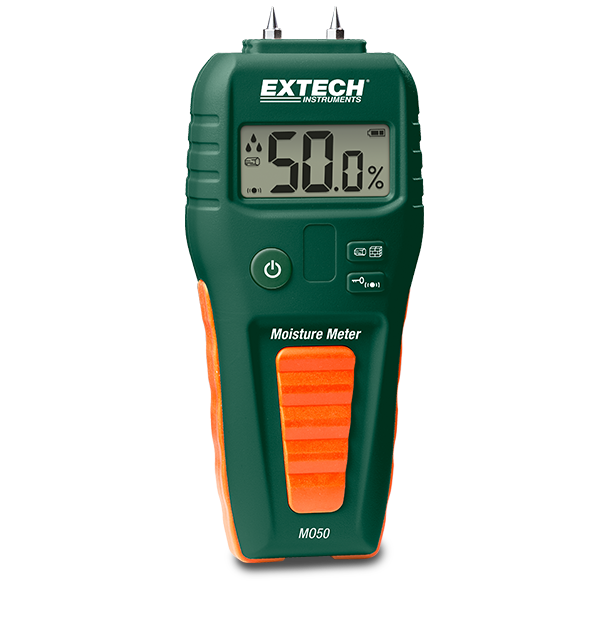Understanding the Various Kinds Of Moisture Meters and Their Applications
Understanding the Various Kinds Of Moisture Meters and Their Applications
Blog Article
The Ultimate Guide to Moisture Meters: A Comprehensive Introduction and How They Can Conserve You Money
In the world of structure upkeep, building, and different markets, the significance of precisely determining moisture degrees can not be overemphasized. Dampness meters offer as crucial devices in identifying and checking moisture material in materials, helping in stopping costly damages and making certain the quality of products. Recognizing the subtleties of various sorts of wetness meters, their applications, and the possible cost-saving advantages they supply can be a game-changer for experts and companies alike. Finding exactly how these devices can not just simplify procedures however additionally add to financial savings is a trip worth starting.
Sorts Of Moisture Meters
One common kind is the pin-type dampness meter, which measures the electrical resistance in between 2 pins inserted into a product. Pinless dampness meters, on the various other hand, use electro-magnetic sensor plates to check a larger location without creating damage to the material's surface.
Moreover, there are likewise specialized dampness meters created for details products like hay, soil, or grain. These meters give precise dampness analyses customized to the one-of-a-kind residential properties of the product being checked. Infrared wetness meters gauge the thermal residential or commercial properties of a product to establish its dampness web content non-invasively, making them valuable for applications where pin or pinless meters may not appropriate. Comprehending the different kinds of dampness meters available can aid industries choose the most appropriate device for their specific wetness dimension demands.

Benefits of Utilizing Moisture Meters

Additionally, using moisture meters can bring about raised power efficiency. By recognizing locations with high dampness degrees, such as leakages or bad insulation, adjustments can be made to improve power preservation and lower utility expenses. In farming settings, wetness meters play a vital function in maximizing crop yields by making it possible for farmers to check soil wetness levels and make educated irrigation choices. Generally, the benefits of utilizing wetness meters extend across different markets, supplying cost-efficient services and promoting far better quality assurance practices.
Just How to Choose the Right Moisture Meter
Choosing the proper wetness meter entails considering essential elements such index as product compatibility, measurement variety, and calibration accuracy. When selecting a wetness meter, it's vital to make sure that the meter is ideal for the specific product you will be screening. Various products have differing electrical homes that can impact moisture readings, so selecting a meter designed for your product is crucial for accurate results. Furthermore, consider the dimension range of the wetness meter. Make certain that the meter can find dampness levels within the range required for your applications. Calibration precision is one more critical element to bear in mind (Moisture Meter). Go with a dampness meter with reputable calibration to ensure specific and constant readings. Some meters may need regular calibration modifications, so understanding the calibration process is important. By thoroughly evaluating these elements, you can select a moisture meter that satisfies your requirements and offers exact dampness dimensions for your tasks.
Appropriate Strategies for Moisture Meter Usage
To make certain accurate Discover More dampness analyses and take full advantage of the performance of a moisture meter, using proper techniques is important. When making use of a pin-type dampness meter, place the pins or probes into the product being tested up until they make complete call. By adhering to these correct techniques, individuals can count on their dampness meter to provide credible dampness degrees, assisting in preventing costly damages or making sure high quality in different applications.

Price Savings Through Moisture Meter Applications
Just how can the calculated utilization of wetness meters lead to substantial cost savings across different industries? Dampness meters play a crucial function in cost savings by preventing prospective damages and making certain quality assurance in different sectors. In the farming market, moisture meters help in figuring out the optimal time for collecting plants, preventing excess or over-drying moisture that can affect the end product's quality. This precise tracking assists farmers avoid unnecessary losses and maximize their return.

Furthermore, in the food processing sector, wetness meters are crucial for keeping an eye on product quality and guaranteeing conformity with safety and security regulations. By accurately gauging wetness content in food, suppliers can prevent spoilage, maintain quality, and minimize waste, resulting in considerable cost financial savings. On the whole, the tactical application of moisture meters is a valuable financial investment that can cause substantial expense decreases and enhanced effectiveness across various sectors.
Conclusion
In verdict, dampness meters are beneficial tools for determining and detecting moisture levels in various materials. By making use of the best wetness meter and adhering to correct techniques, individuals can effectively protect against expensive problems triggered by excess dampness.
Dampness meters offer as essential tools in spotting and monitoring moisture web content in products, assisting in stopping pricey damages and ensuring the top quality of items. Infrared moisture meters determine the thermal buildings of a product to identify its wetness content non-invasively, making them useful for applications where pin or pinless meters may not be ideal.Wetness meters provide important benefits in precisely keeping track of and analyzing wetness levels in varied materials and settings. In farming setups, wetness meters play an essential duty in maximizing crop returns by making it possible for farmers to monitor dirt wetness levels and make informed watering choices.In verdict, dampness meters are useful devices for finding and determining wetness levels in numerous products.
Report this page